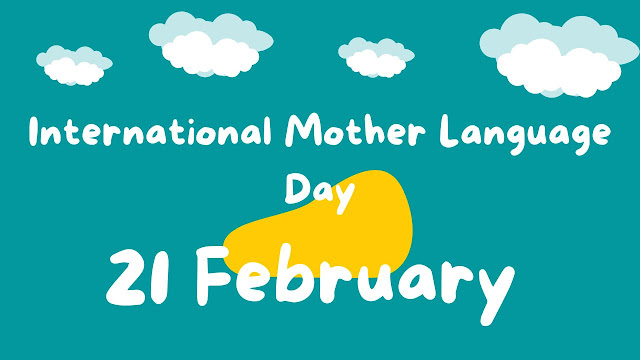International Mother Language Day
International Mother Language Day is an annual celebration observed on 21 February to promote linguistic and cultural diversity and multilingualism. The day was first announced by the United Nations Educational, Scientific and Cultural Organization (UNESCO) in 1999 and has since been celebrated worldwide.
The idea behind International Mother Language Day is to raise awareness about the importance of preserving and promoting mother languages, which are often at risk of disappearing due to globalization and other cultural influences. UNESCO encourages people to celebrate their linguistic and cultural heritage, to learn and use more than one language, and to promote respect for all languages and cultures.
The choice of 21 February as the date for International Mother Language Day is significant, as it marks the anniversary of the day in 1952 when students in Bangladesh demonstrated for the recognition of their language, Bengali, which was then one of the two official languages. was one of the -Pakistan. The protest turned violent, and several students were killed in clashes with the police. The language movement eventually led to the recognition of Bengali as the official language of Pakistan in 1956 and later the creation of Bangladesh in 1971.
Every time UNESCO chooses a theme for International Mother Language Day. These themes are designed to highlight specific aspects of language and cultural diversity and inspire action. Some of the themes chosen in the past include “Languages of Quality Education, Instruction and Learning Outcomes,” “Indigenous Languages for Development, Peacebuilding and Reconciliation,” and “Inclusion in and Through Education”: Language Matters Is.”
Celebrations of International Mother Language Day take many forms depending on the country and community. In some places people gather to read poetry or literature in their mother tongue, while in other places cultural programs and language-based competitions are organized. The day is also an opportunity for people to reflect on the importance of preserving their cultural heritage and to advocate for language rights and linguistic diversity.
International Mother Language Day is an important annual celebration that promotes linguistic and cultural diversity and multilingualism. It is an occasion for people around the world to celebrate their linguistic and cultural heritage and to raise awareness of the importance of preserving and promoting mother languages.
Why is it called mother tongue?
The term “mother tongue” refers to the language a person first learns and uses most frequently in their early life. It is the language they are most comfortable with and is often the language used in their family, community and cultural environment.
The term “mother tongue” has been used throughout history in a variety of cultures and languages, and refers to the idea that a person’s first language is that of a nurturing parent or mother, who teaches them Provides the foundation for identity and cultural heritage.
In some contexts, the term “mother tongue” is also used interchangeably with “mother tongue” and has a similar meaning. The term “tongue” refers to the way language is physically produced in the mouth, and it emphasizes the importance of speech and communication in the development of an individual’s language skills.
The use of the term “mother tongue” or “mother tongue” highlights the importance of linguistic and cultural heritage and the need to preserve and promote the diversity of languages spoken around the world. It is a reminder that language is not just a means of communication, but also an important part of our cultural identity and heritage.


